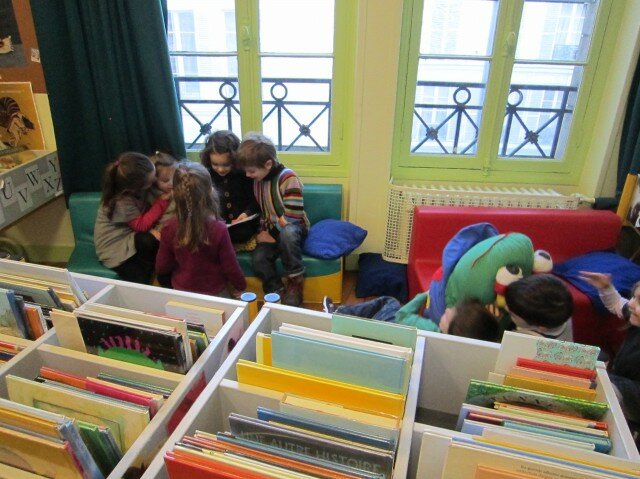Commenter Casey responded to our earlier summary of Alain de Botton’s Seattle talk, and did so at such length, we were prompted to give him his own post. Casey can be found more regularly at Transmit-Receive.
I was nudged by quite a few friends to see if I wanted to see Alain de Botton speak. I refused the invitation after watching his 20-minute-long TED talk on the same subject.
As an atheist (as is, likely, a hefty majority of deBotton’s intended audience), not only do his suggestions come off as naive, but dangerous in advocating the creation of new ideological projects using religions as their model. I would’ve thought we’d have learned our lessons from the 20th century’s failed utopian projects.
Despite the stereotype that all atheists are liberal in their political persuasions, the only real correlation I can draw between atheism and politics are a pervading inclination to anti-authoritarianism. To the atheist, any fraternity, political party, or sports team which asks for the subversion of the self for “the cause” is, at the root, mimicking what is dangerous about religion (and consequently, about all “sacred cows,” both secular and sacerdotal).
Suggesting the need to remedy the apparent societal crisis by reconciling atheists with believers with the formation of a church, holding erudite sermons, or creating other quasi-spiritual public rituals as a way to access some type of “wisdom,” is an appeal to submission and the surrender of rational thought.
I sense that de Botton is attempting to play the role of the ecumenical peacekeeper in the wake of the more intellectual or vitriolic attacks from other popular atheists like Dawkins (religion is biologically-driven delusion), Hitchens (religion is implausible ideological poison), or Harris (religion is a problem of conversation). His thesis seems to be derived from the idea that there is a wound that needs healing, namely finding a function for sheltered, curmudgeonly, antisocial atheists in the Great Spiritual Machine so that they can be “welcomed back into the fold” of polite society.
A separate (and far messier) discussion de Botton unfurls here is the role of so-called “spiritual” experience, or the lack thereof. Indeed, there are some human experiences that are difficult to reconcile with a strict materialist view of reality. It is tempting for the materialist to catalogue these experiences in the same phylum as delusion, hallucination, or some other type of cognitive failure.
Yet the validity of this aspect of reality, I argue, should not be downplayed or denigrated by atheists. In the same way that those who label themselves “spiritual” or “religious” practice an equally regrettable condescension in asserting that atheists must be deficient or deluded in some way because of their denial of the potential of these experiences. Undoubtedly, humans do feel things which are mysterious, those that of us that are skeptical of the existence of souls, parallel realities or transcendent beings would do well to not deny the personal (and real) nature of so-called spiritual experience in favor of an attitude which says, “How can I learn more about this?”
Additionally, I find it unsettling to have a conversation about what “spiritual” is, as the meaning of the word has so many divergent applications (appropriated by too many provacateurs, charlatans, and obscurantists) that it has moved into the neighborhood of words like “socialist,” drained utterly of comprehensible meaning. I concede that de Botton has probably felt deeply spiritual when reading British poetry, I too have felt such a thing in my clearly impoverished, emotionally-stunted existence. For me, it was an unusually profound, tear-inducing, heart-swelling tsunami of emotion on watching the first episode of Carl Sagan’s Cosmos. But, I’m not rushing out to create The Church of Starstuff with “Sagan as Our Prophet.”
Personally, I find de Botton’s attempts at this kind of ideological fusion flawed from their inception. Religion (lower case “r”) places us at the intersection of ideology and identity. Once incorporated in the individual, these two become inseparable.
But atheism is neither an ideology nor an identity, as such. Atheism is merely the lack of belief of theistic claims (atheists enjoy satirizing this confusion by noting that “bald is not a hair color” and “not collecting stamps is not a hobby”). Accordingly, apart from a category label (a placeholder if you will), atheism says nothing substantive about the identity of an atheist.
As Sam Harris points out, we don’t have a label for “Not a Witch,” and we don’t form non-profit organizations, blogs, and Facebook pages rallying around all the cause of “Not-Witchism.” The current public face of atheism is, in actuality, the work of antitheism, a related but altogether separate political and ideological platform. The confusion is understandable because the antitheists uses “Atheism” as the rallying cry and, when challenged, theists resort to an oversimplified dualism to rally support. To present the label “atheist” as the reverse side of dualistic theist worldview is to profoundly misunderstand the nature of epistemological structure of human belief.
In response to de Botton (and those like him): I am not broken. Please don’t try to create hymns and sermons and Super Bowl socials on behalf of my impiety. I’ve got better things to do with my Sundays.





